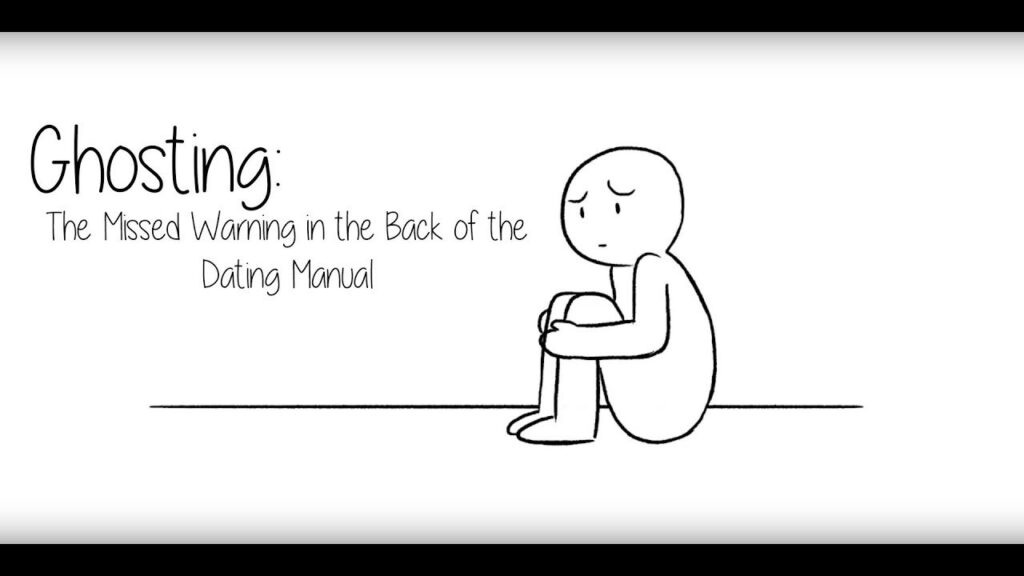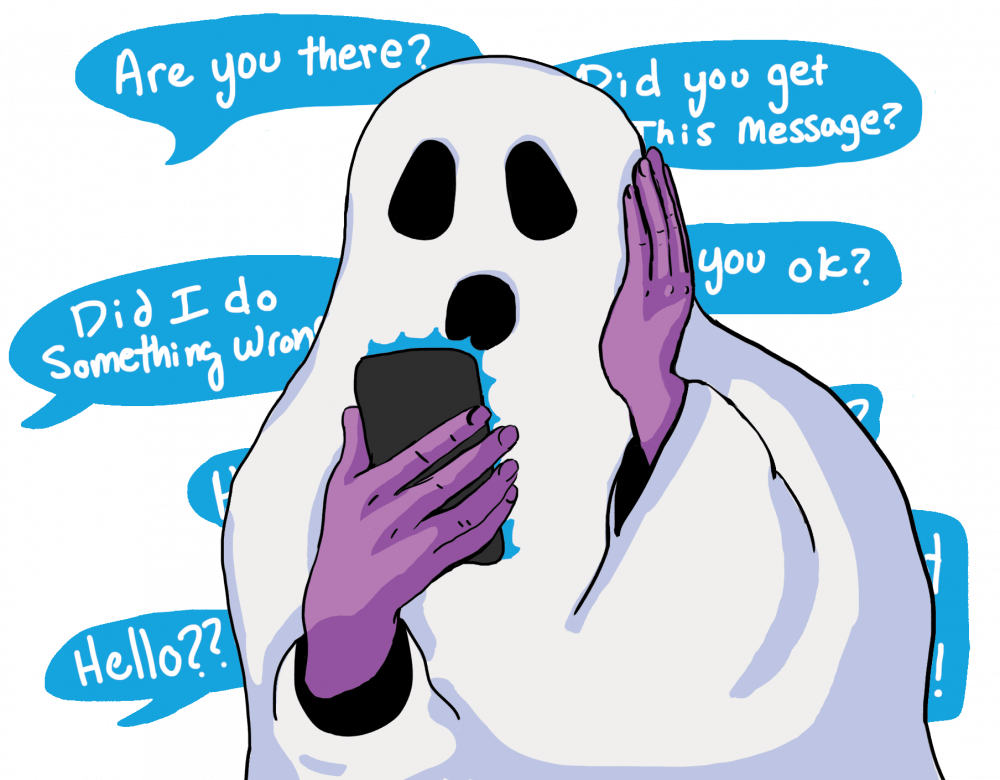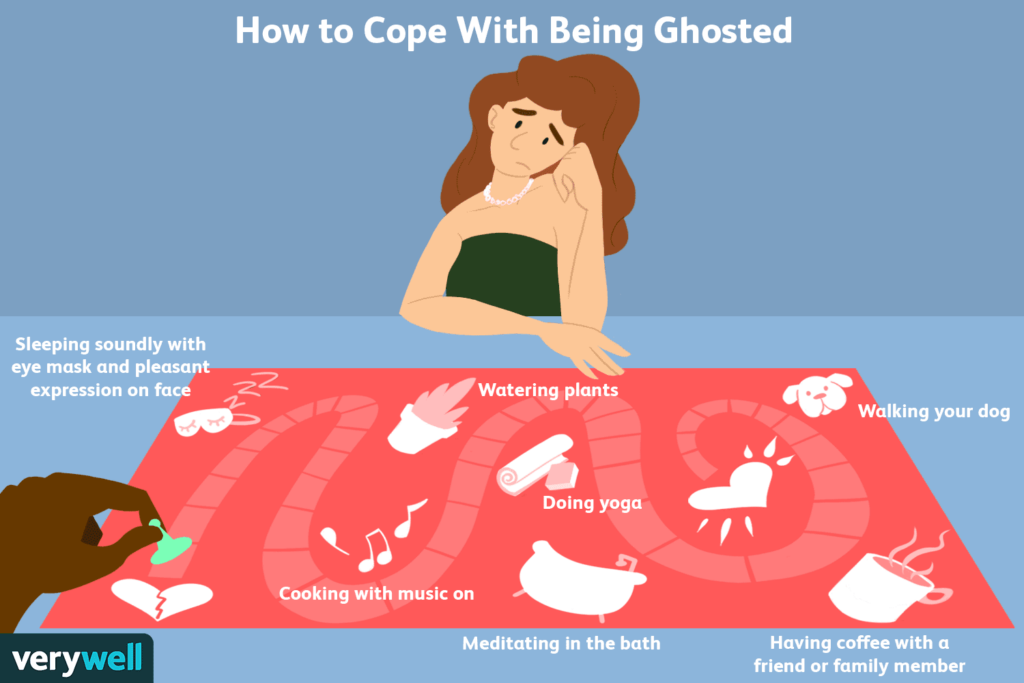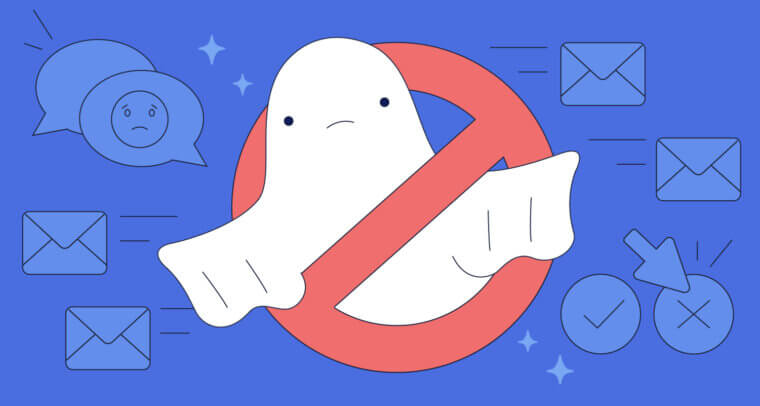By Polina Pallieraki,
Ghosting is a phenomenon of our time. It is observed when someone abruptly interrupts any form of communication in a friendly, professional, or romantic relationship. Studies show that 25% of people will experience a ghosting experience in their lifetime.
What is ghosting?
Imagine the following scenario: while you are in a relationship, suddenly and without warning, your partner disappears. They do not answer their phones or messages and have no communication on social media. Chances are that they did not leave the city out of the blue (for example, due to a family problem) and did not have an accident, but simply ended the relationship and communication without explaining why. They have simply disappeared.
Ghosting occurs even in long-term relationships. Informal relationships, friendships, and even business relationships can end in a form of ghosting. The person who disappears leaves the relationship in an easy and fast way. No drama, no hysteria, no questions, no need for answers, no excuses for their feelings and behavior. People who disappear in this way benefit from avoiding embarrassing situations and conflicts, and do nothing to improve their behavior in their future relationships.
Feelings of rejection, uncertainty, and insecurity appear in the person receiving the ghosting. They wonder what exactly happened. When they realize that the other person has ended the relationship this way, they are left wondering why, what went wrong, what they did wrong, and how they did not see the signs.

Causes of ghosting
Why would anyone choose to disappear from someone else’s life without discussing the relationship? You will never understand why people disappear. The ghosting phenomenon is complex. It is possible that people with avoidant personality traits (who are hesitant or completely avoid connecting with others, often due to childhood psychological trauma and parental rejection), who tend to be reluctant to form close relationships with anyone, because they have trust issues, are more likely to use ghosting to separate.
The reasons why someone disappears are many and complex, but generally, the main motivation is avoidance. People who resort to ghosting believe that when they disappear, they avoid becoming mean and reduce the inconvenience they would cause. But this is a tragic irony. Of course, their actions make them look like the worst people in the world and, ultimately, cause much more problems, one of which is upsetting the “ghosted” person. Ghosting allows those who disappear to avoid the drama, disagreements, or problems that arise after the end of a relationship.
People who have commitment issues use ghosting as a way to escape. They are afraid to form a lasting bond with others, which is why they leave them vulnerable to rejection. They are scared of the idea that they will be hurt, which is why they are the first to reject. This is always a danger in close relationships. We have faith in the unknown and accept the risk of being hurt in exchange for a strong and lasting connection.
Also, people who believe in destiny, in fate, and that relationships are meant to exist, are more likely to disappear than people who believe that relationships need patience and work. One study found that people who disappear have been ghosted by others. In this case, they know what it is like to be in a relationship and suddenly, without explanation, they disappear. People who disappear feel no compassion or guilt for their behavior.
This way of ending the relationship is not healthy for anyone, especially for people who disappear. Avoidance leads nowhere and ultimately causes more pain. The more you avoid disagreements, the more anxious you feel. This creates a vicious circle.

Impact
Ghosting leaves the victim confused and ignorant, having many unanswered questions. If there are old psychological wounds related to abandonment or low self-esteem and self-esteem, they are likely to come to the surface again. They experience ghosting as a frightening rejection.
Victims feel weak and silent in ghosting. They have no indication that the relationship is not going well, and the end is unjustified. And when the perpetrator has disappeared, the victim does not know who to talk to.
They are often faced with unanswered questions, blaming themselves so that they can feel in control. But this way, they get hurt more. The issue is not the victims. It has to do with the perpetrators.
Healing
The first and most difficult step in dealing with ghosting is acceptance. It is very easy to find solace in theories and excuses, such as they might have lost their phone, they might have had an accident, they might have a lot to do, etc. But the sooner you see the fact that they have disappeared, the sooner your wounds will begin to heal.
Once you accept what happened, then it is your turn to ask questions. Why did they do that? What am I doing wrong? Why did they not talk to me? It is perfectly normal to have those questions, but they do not make sense and are a waste of energy. You will never get the answers you are looking for.
Try to stay away from these people. Do not watch their social media or read old messages — delete them. Otherwise, you keep the memories alive, and you cannot move on. It makes no sense to chase a ghost. Delete their phone number and stop following them on social media. They will help you heal.

It is normal to feel angry, but try to avoid controversy. You will end up with rejection on your own and you will feel more pain. Take care of yourself and your emotional health. Do not subject yourself to situations that will hurt you again.
Instead of arguing, write down what you feel. Ghosting can make you feel like you have no voice, so rediscovering your voice is important for healing. Writing and sending a letter to the missing person is risky because there is a risk of further rejection. When someone disappears, it can leave you with an emotional burden that does not always belong to you. Write a letter that you will never send. This way, you will express your feelings and you will not feel that you have lost your voice.
A sign that you are close to healing is when you begin to feel compassion for the person who has disappeared. Instead of saying that they are a bad person, you start to see them as a sad person. This behavior shows that you understand that they have issues of maturity that make a stable relationship impossible. The best thing you can do is move on with your life and find someone you deserve.

Dealing
Ghosting hurts — it is a harsh rejection, after all. It is especially painful because you are left alone to try to process what happened and flood you with thousands of emotions and stress. If you have issues of abandonment, self-confidence, or self-esteem, they may come to the surface again, as we stated before.
It is good to avoid what reminds you of your ex. Because otherwise, you will feel painful emotions, and this will not help your emotional health.
Stop fooling around with old photos, reading old messages, watching Facebook and Instagram posts, and anything else that keeps your ex alive in your memory.
Once your ex has chosen to disappear, it is good to understand some things about it, and not throw all the weight on you.
References
- Ghosting: ποιοι είναι οι λόγοι που συμβαίνει και πώς να το διαχειριστείς, maxmag.gr, Available here




